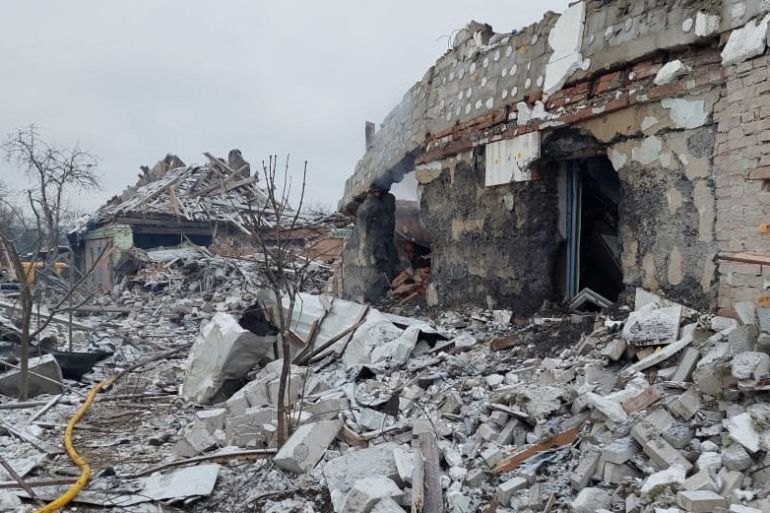Do not call Ukraine invasion a ‘war’, Russia tells media, schools
Instead, ‘special military operation’ should be used to describe Moscow’s assault on Ukraine, according to officials.

As Russia’s bloody military operation against Ukraine nears the end of its first week, the Kremlin has been working hard to promote its version of events in the face of widespread indignation and an anti-war movement at home, which has seen nearly 7,000 people arrested across the country since the conflict began on Thursday.
For instance, a statement by Russia’s internet censor board, Roskomnadzor, warns that referring to the ongoing military campaign as an “invasion”, “attack” or “declaration of war” will lead to the offending website being blocked.
Keep reading
list of 4 itemsNavalny urges Russians to protest daily against Ukraine invasion
Amid war, a critical Russian radio station goes silent
Russia’s Lavrov: A third world war would be nuclear, destructive
Since Tuesday, schools across Russia have hosted special war-themed social studies classes, where teachers must tell schoolchildren between the seventh and 11th grades the official government’s position on history and what the Kremlin deems the “special operation”.
The lessons are guided by manuals distributed through the school system that outline the approved version of events.
According to one such manual, the contents of which were published by the independent Russian media outlet MediaZona, the Ukrainian nation did not exist until the 20th century and in 2014 suffered a bloody coup d’état that installed an American puppet regime.
The story goes that after the self-described Donetsk and Luhansk People’s Republics in eastern Ukraine rose up against it, they were besieged and subjected to a “genocide” for eight years, which Russia is now preventing through a “special peacekeeping operation” (the materials explicitly state this is “not a war”).
The manual also mentions NATO and how Russian security concerns were ignored by Washington as another reason for the necessary military operation, as well as Ukraine’s capacity, under its current, rabidly anti-Russian leadership, to build nuclear weapons.
A source at a school in a Russian city told Al Jazeera by phone that they had received similar manuals and, in a public school, teachers had no choice but to carry out these lessons in the framework of history or social studies, and provide proof they are doing so.
As in the approved media narrative, they are not allowed to refer to the ongoing military campaign as a war or invasion, but as a “special operation”.
The source added that the opinions among teachers vary depending on their age, but even among those who generally support President Vladimir Putin there are those who are horrified by the war.
Additionally, parents have received letters from their children’s schools, warning them to keep an eye on their children’s consumption of social media such as TikTok where they may be encouraged to use the hashtag #нетвойне (“no to war”) and be drawn into “unsafe” protests, as well as be exposed to other malfeasance such as “suicide flash mobs, detailed instructions on gender reassignment, and promotion of same-sex relationships”.
In recent years, promoting military and patriotic education to the nation’s youth has been a priority.
A uniformed “Youth Army” was formed in 2015. Hundreds of thousands of children aged eight to 18 were taught how to use weapons and instilled with patriotic values at regularly-attended camps.